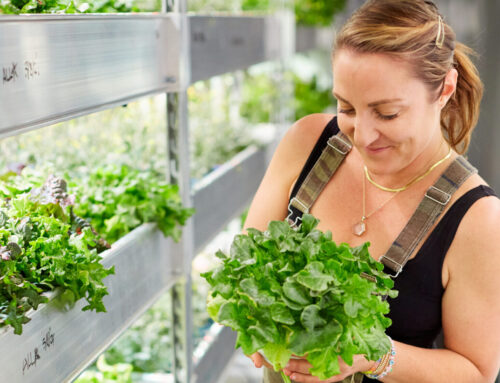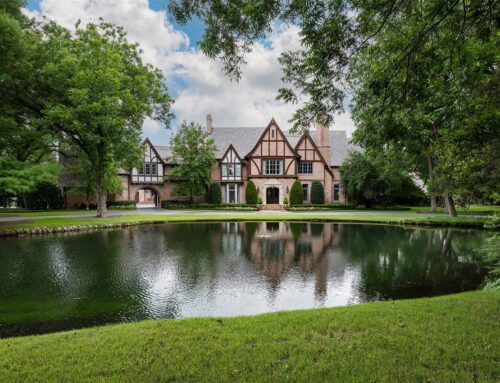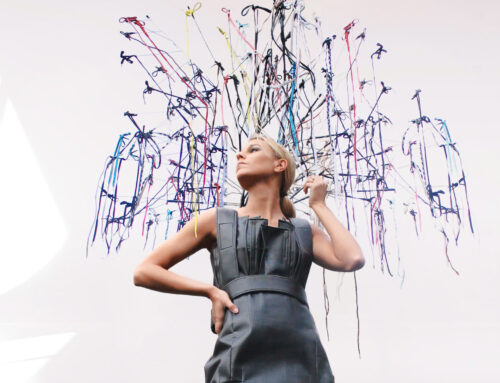It is perhaps one of the most profound and widely known passages in our nation:
“Give me your tired, your poor,
Your huddled masses yearning to breathe free,
The wretched refuse of your teeming shore.
Send these, the homeless, tempest-tost to me,
I lift my lamp beside the golden door!"
These words still ring as true today as they did when they were etched into our Statue of Liberty more than 100 years ago. Immigration is undoubtedly an American tradition. Masses far and wide still flock here hoping just beyond that “golden door” there’s a better life — or as one immigrant says: “You’re not at the pearly gates with Peter, but it sure feels that way.”
That attitude is a reminder that we live in a great nation, a place where people can come as they are and take their best shot at their own American dream.
These are the stories of some who have left it all behind for a new life here in our neighborhood. As we celebrate our nation’s birthday this month, let’s celebrate with some of the immigrants who help make so remarkable.
When Tony Hernandez punched out of his factory job in to start a new life in Texas, he anticipated an adventure. But the teenager had no idea how deeply the experience would forever change him.
“It was 1982 when I crossed the river with a group,” he says. “It was the middle of winter at night; the water was ice cold. A branch trapped me and water pulled me under. The current was so strong that it took all my clothes. I would have died if one of the men in that group hadn’t pulled me out.
“So there I was soaking wet at 3 a.m. in the middle of February with no clothes. The people I was with had to give me the little clothes they had. We all had to wait in the cold for three hours until someone came to pick us up. I remember there were two small children crying because it was so cold. We found a plastic tarp, and we all huddled together under it so our body heat would keep us alive.”
After what he says felt like an eternal wait in hellish conditions, a driver finally came to pick up Hernandez and the others.
“I had to ride in the trunk of a car with three other people for six hours,” he says. “We all suffered the whole time.”
Hernandez finally made it to Houston, where his older brother was waiting for him. After a six-year hiatus, it was an emotional reunion.
“I remember we went to church and out to dinner. It was great being with him again.”
But that bit of joy was cut short.
“The next day, he was deported back to . When I found out, I cried a lot.”
Within a week, however, his brother had managed to return to Houston.
“I’m sure my brother was motivated to get back here fast because he knew I was all alone.”
By the mid-’80s, Hernandez had made his way to Dallas and started a family with his wife. Around that time, the federal government began talks of amnesty for illegal immigrants, prompting him to apply for citizenship.
After several years as permanent residents, he and his wife became citizens in 1999.
“Citizenship has been a double-sided knife: On one side of the border, I have my parents and my past — and on the other side of the border, I have my kids and my future.”
Hernandez works on the maintenance staff at St. Alcuin in Preston Hollow, and while he says “life has been good here in the ,” part of him can’t forget what he endured to get here.
“As long as I live here, I can’t forget the suffering I went through in 1982 to get to . This is my home now, and I’m happy for that, but I will always live with 1982.”
Mauricio Navarro spent his early years in Valle de Bravo, a quaint lakeside village outside Mexico City. When his father moved the family to Houston, Navarro arrived a sheltered 9-year-old, naïve to the racial tensions that existed in the .
“I wasn’t the typical Mexican immigrant,” he says. “My family was not poor, so we lived in a good area of Houston. I was the first Hispanic student at my school, but I don’t look like most Hispanics, so the kids thought I was European.”
Because of that, Navarro says his classmates initially accepted him.
“But as soon as I announced I was from , it completely backlashed. There were beatings and verbal abuse daily. It was horrible.”
The constant scorn led Navarro to denounce his Mexican heritage.
“I discovered that branding myself as European made life easier in this country, so that’s what I did.”
It wasn’t until college that Navarro says he rediscovered his ethnic roots.
“I went to UT Austin and became heavily involved in Hispanic student life,” he says. “It was empowering, invigorating, and it gave me a new sense of pride. It was like I was completely draped in the Mexican flag.”
While Navarro was relishing the rebirth of his cultural identity, he says he “still felt very American” and therefore began applying for citizenship.
“I began applying in 1987, and I wasn’t granted citizenship until 2007. I can’t tell you how many attempts I made to be naturalized, but there was always a hold-up.”
Cutting through the red tape for 20 years has made Navarro appreciate his citizenship even more, he says.
“Citizenship is a gift that a lot of U.S.-born take for granted. Applying for citizenship can be a demeaning process. You are cattle prodded through the system and called by a number, not a name. It almost seems like you are begging them to approve your case. You’re not at the pearly gates with Peter, but it sure feels like it.”
Navarro now runs Raiz, a Hispanic-oriented public relations firm he founded in 2001. Ironically, Navarro (who is preparing to celebrate his first Independence Day as a citizen) has spent that past several months planning the Fourth of July Trinity River Fiesta, a city-sponsored celebration. He says the experience has afforded him a chance to reflect on what it means to be patriotic.
“Being American is about celebrating who you are, and your culture. For me, Fourth of July isn’t just about hot dogs and apple pie — it’s also about tacos and chicarones. But that’s what makes this country so great.”
When Elizabeth Voves set sail for a Caribbean cruise, she expected to return with a great tan and a suitcase full of knick-knacks. What she didn’t expect to return with, however, was a budding romance.
“I fell in love on that cruise. I always say that was my own love boat.”
After the cruise, Voves and her newfound boyfriend kept their love connection alive through correspondence, a remarkable thing considering they spoke different languages.
“He was American, so he only spoke English,” she says. “And I was Mexican, but I spoke some basic English. We got by with that and a lot of help from the dictionary.”
Although there was an instant love connection, Voves admits there were some cultural hiccups along the way.
“One time, he came to visit me in Mexico, and as I was going to pick him up, it occurred to me that I hadn’t asked him what hotel he was staying in. Turns out he had assumed he could stay with me because in America, it’s common for guests to stay in your home. But where I’m from, that’s not how it’s done. That’s just one of the many cultural differences I’ve discovered after marrying someone from a different country. It’s been very interesting.”
After a year of dating, the couple decided to marry, agreeing to live in the United States. The decision, she says, was bittersweet.
“My family was hesitant to let me go. Part of them was happy because they knew I was in love, but part of them was sad to see me leave my home for another country. I understood how they felt, because I felt the same way.”
Although it was hard, Voves says she starting a new life in the United States in 1995. She began the citizenship process, applying for her green card.
“You know, they call it a green card, but it’s not green — it’s actually pink.”
Within a year, Voves was a U.S. citizen — something few other immigrants experience with such speediness or ease.
“The day I actually became a citizen, I wanted to laugh, and I wanted to cry. There were a lot of mixed emotions that day. And even after I had my citizenship, I didn’t go home at first because I was scared I wouldn’t want to come back.”
It wasn’t until about two years later that her homesickness finally subsided.
“This is home now. Being a U.S. citizen is a honor, and I am proud to be an American — but Mexico is still a part of me, I can’t ever change that.”
Voves now teaches Spanish at St. Alcuin Montessori in Preston Hollow, something that allows her to infuse her Mexican heritage into the classroom.
“I share my culture and traditions with my students through stories and songs,” she says. “I love that you can share different cultures in this country — it’s so awesome.”






